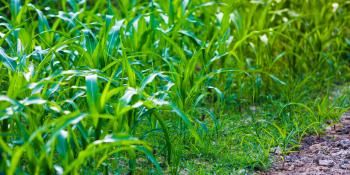Photo story: Equipping young people with skills for sustainable development
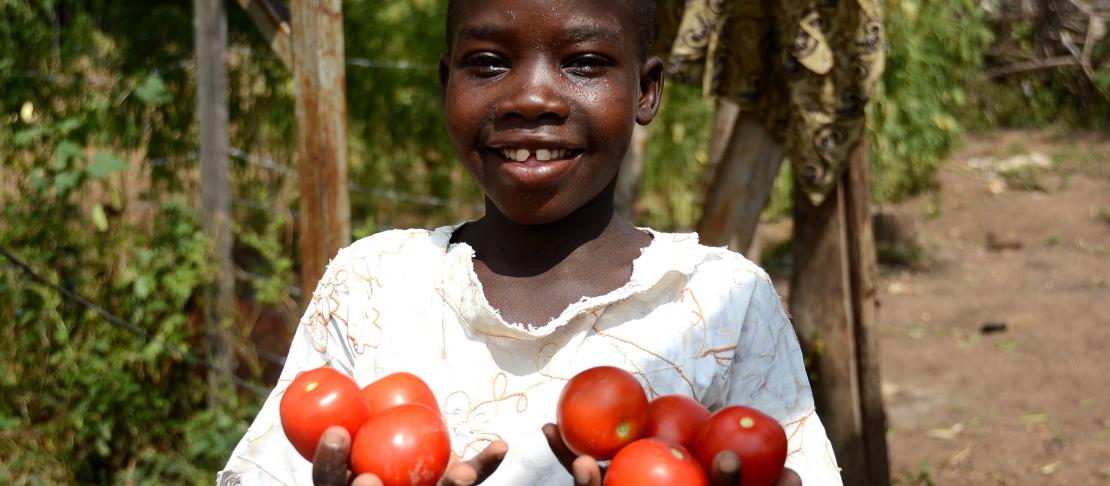
July 15 is World Youth Skills Day. Under the theme “Skills Development to Improve Youth Employment,” we show you some of our initiatives engaging the youth.
In 2015 two global policy agreements relating to climate change and sustainable development were made: the 2015 Paris Climate agreement and the 2030 sustainable development agenda (SDGs).
World Youth Skills Day 15 July 2016
To highlight some of the above initiatives (and initiatives by partners) involving youth, we have organised a discussion forum on our network, the Climate and Agriculture Network for Africa (CANA). The topic is Climate-Smart Agriculture and Youth Engagement in the 2030 agenda.
The conversation will continue from 13 - 22 July 2016.
Join the online conversation Now!
If countries are to succeed in achieving the SDGs and addressing the impacts of climate change, governments and development partners must seek out an active and substantive engagement of young women and men from diverse backgrounds in national-level planning, implementation, and monitoring.
The CGIAR Research Program on Climate Change, Agriculture and Food Security (CCAFS) and partners are engaging young men and women in various initiatives in climate-smart villages (CSVs). These are test sites, high-risk areas suffering most from a changing climate, where researchers are working with farmers and development partners to identify climate-smart technologies and practices that could contribute to food security.
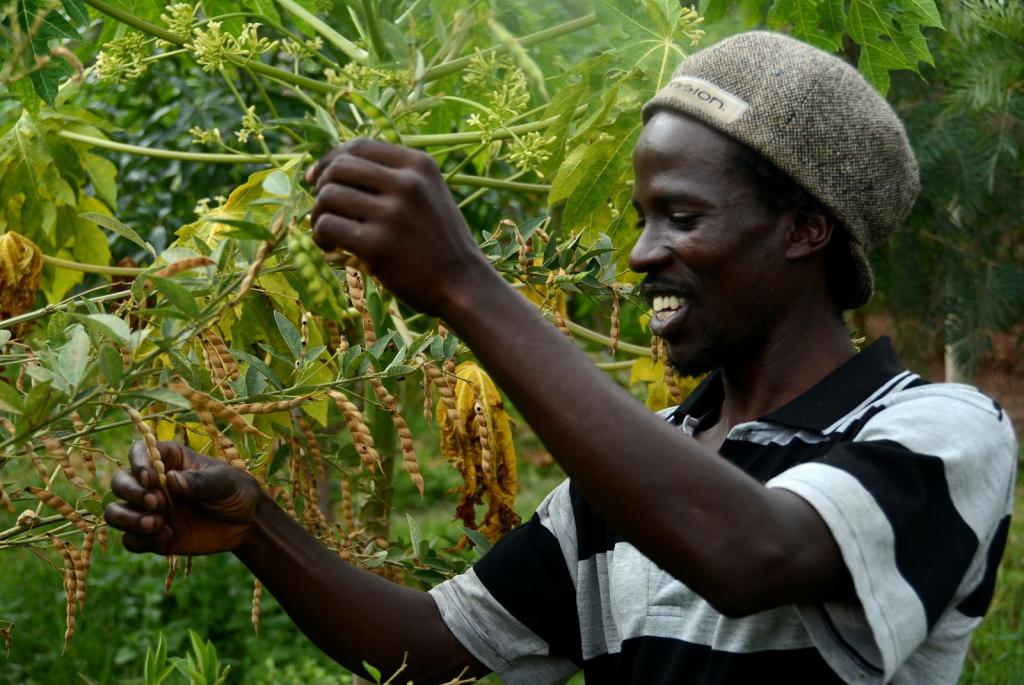
A farmer at the Nyando CSV, western Kenya, admires a pigeon pea crop grown in a community demonstration farm. CCAFS and partners are working with farmers in Nyando to test new varieties of drought tolerant crops such as pigeon pea that give good yield with very little water. Photo: S.Kilungu (CCAFS).
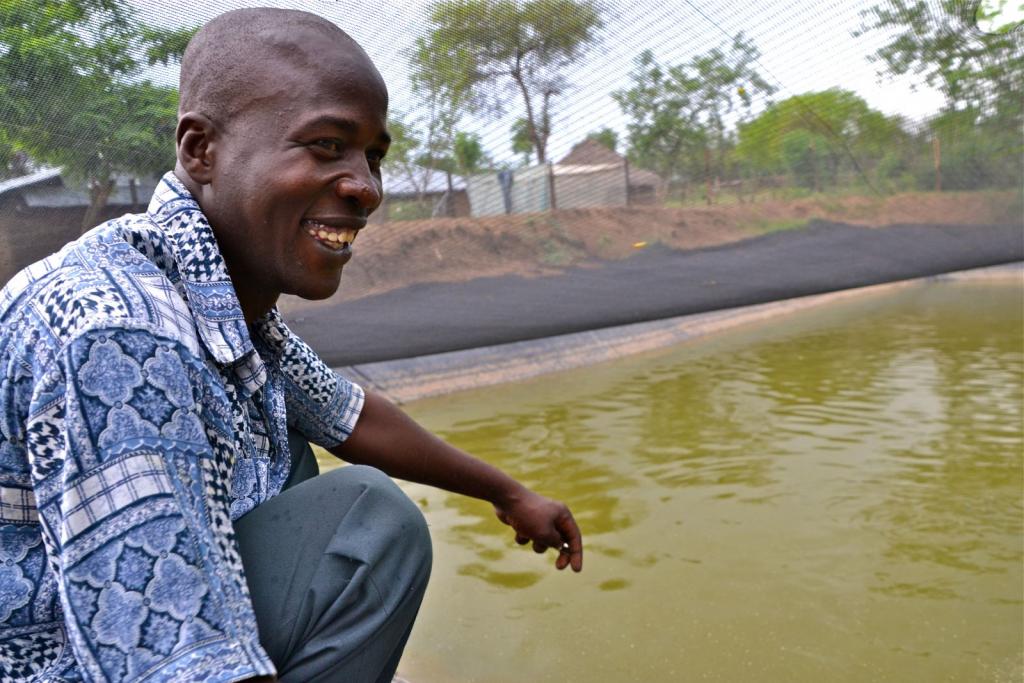
Lower Kamula youth group leader Jack Onyango, in Nyando CSV, shows off a fish pond management by his group of young farmers. The group received training and support to construct a greenhouse and fish pond as well as skills to manage the two from CCAFS and partners. Photo: C.Schubert (CCAFS). Read more: Grand greenhouse plans keep youths farming for a better future.
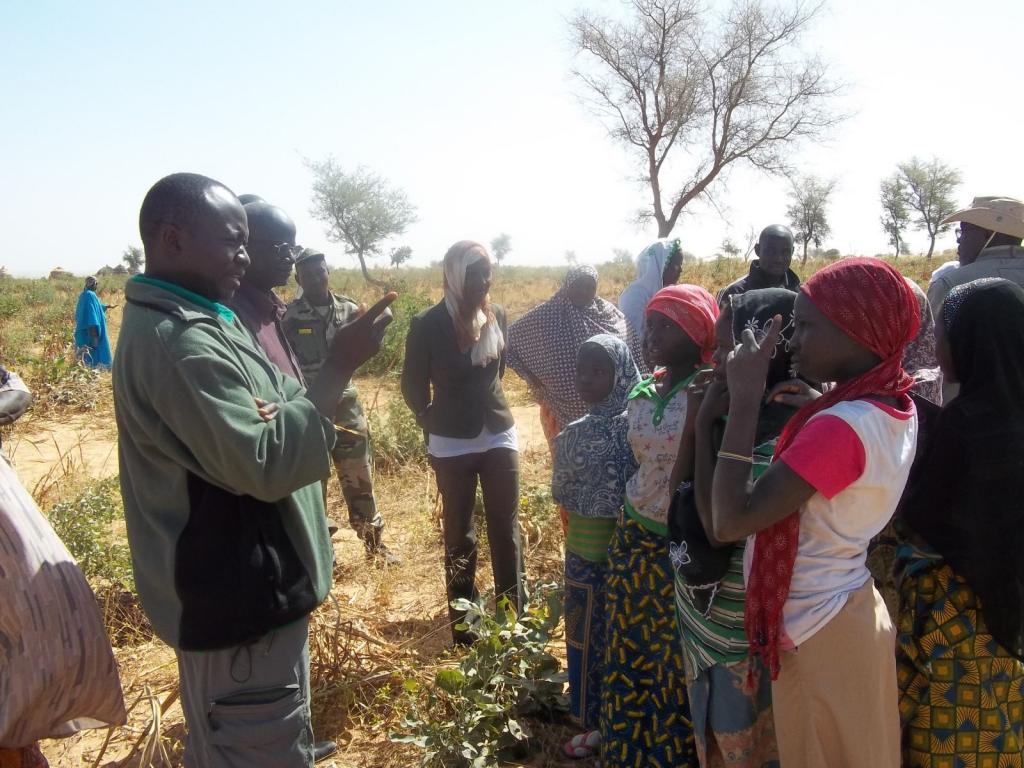
Dr Patrice Savadogo, International Crops Research Institute for the Semi-Arid Tropics (ICRISAT)/ World Agroforestry Centre (ICRAF) joint scientist giving a talk to pupils in Gassayda village in Niger on farmer managed natural regeneration (FMNR) practices. The objective is to sensitize young people to the challenge of climate variability and change and also the need for climate smart agriculture. Photo: ICRISAT-Niamey, Niger.
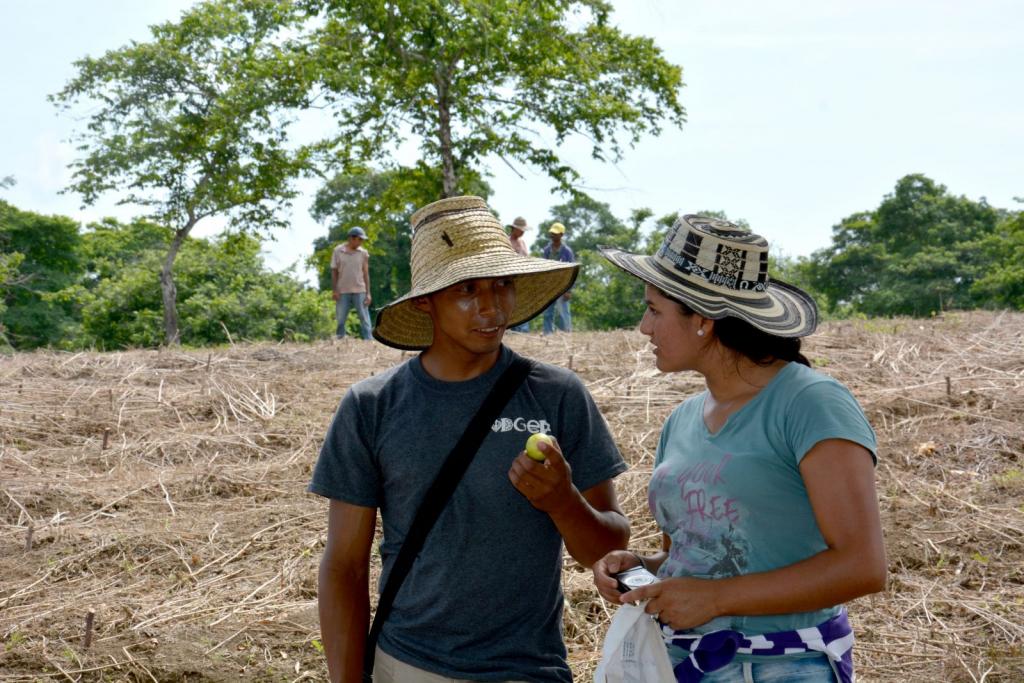
CCAFS promoted an exchange between farmers from the north and south of Colombia to share experiences, practices and approaches on climate change adaptation. In the last exchange, a delegation of the climate-smart village of Cauca visited the village of San Joaquín, located in Mahates (Bolivar) including two young farmers; besides, one of them participated as a reporter of the exchange. Photo: JL Urrea (CCAFS).
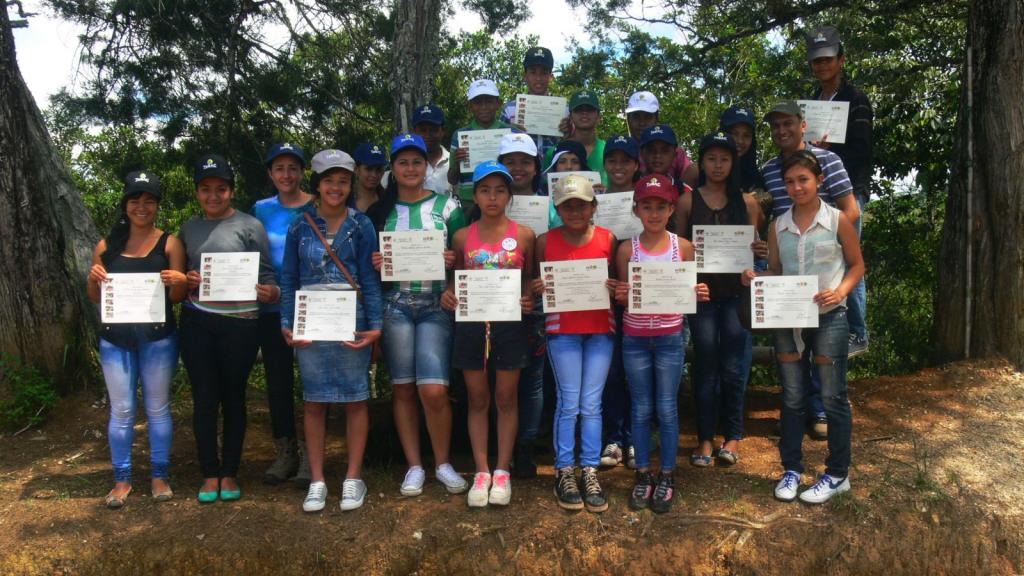
CCAFS has been focusing efforts to promote the love for their village in children and youth of Cauca CSV, as a bridge to the adaptation to climate variability and change, by linking children and young people through a program of capacity building. This program began with a process of communication for social change; empowerment in using information technology and communications (ICT) for territorial ownership and complemented by leadership processes and agribusiness ventures. In the picture, local youth receive their certificate for finishing the course of photography, script and participatory video, and received a symbolic graduation of ‘little journalists’. Photo: LA Ortega (EcoHabitats).
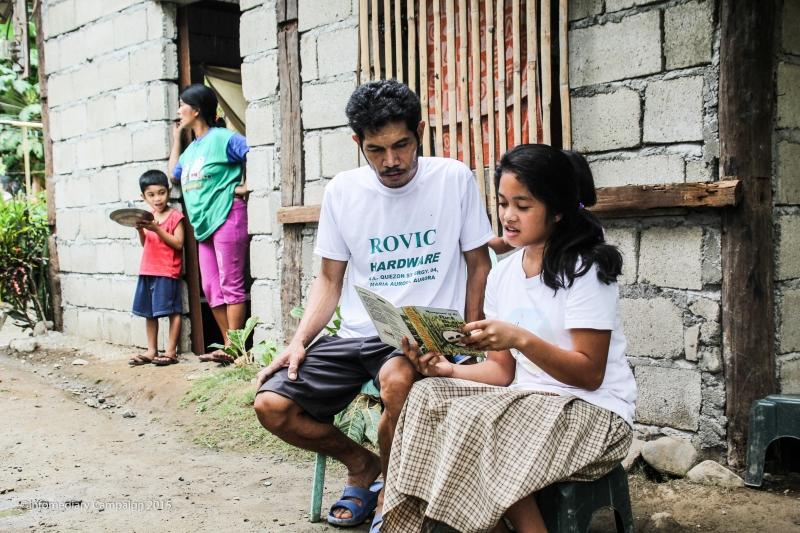
Role reversal: Yes they can! Children can be their parents' teachers even on topics as complex as climate change and agriculture. CCAFS in Southeast Asia has been supporting the Infomediary Campaign being implemented by the Philippine Rice Research Institute. The project taps the youth as information sources on various topics around climate change and agriculture. Photo: Infomediary Campaign 2015.
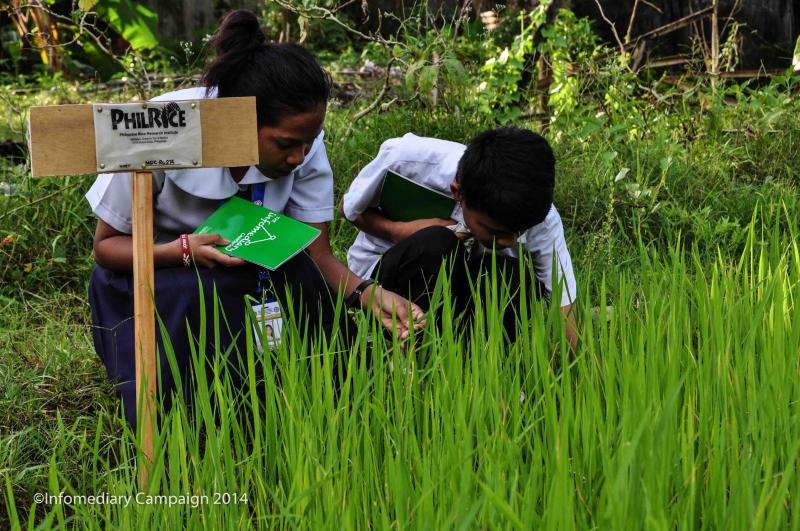
Experiential learning has been proven to be a very effective learning modality. Hence, participating youth in the Infomediary Campaign learn by doing and experiencing agricultural activities. Photo: Infomediary Campaign 2014. Watch this video for more information on the Infomediary Campaign: How good are our infomediaries?
Photostory prepared by Vivian Atakos - Communication Specialist, CCAFS East Africa. Contributions received from Bernadette P. Joven - Communication Specialist CCAFS Southeast Asia, Jose Luis Urrea Benitez, Communication Specialist CCAFS Latin America and Mathieu Ouedraogo - Scientist, Participatory Action Research, CCAFS West Africa.


